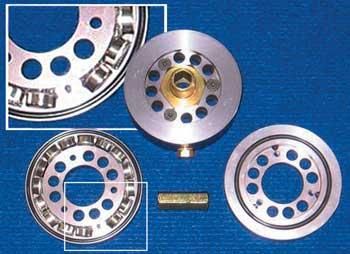Stainless steel components ensure optimum machinery life

A stainless steel reservoir, vessels and piping should be used to ensure minimum oil flushing time, optimum machinery component life and machinery reliability. Oil Flushing time can significantly extend commissioning and turnaround time, if any oil system components or piping are subject to corrosion.
(Critical equipment trains that do not use stainless steel piping and components have suffered unscheduled shutdowns)
Lube and seal oil overhead tanks that are not stainless steel will reduce bearing, oil seal and or driver control or protection MTBF, since there
cannot be a filter between these tanks and these components.
Replacement of existing non-st
ainless oil system piping, components or the entire system can usually be justified in un-spared critical machinery trains, if the train has experienced one or more shutdowns, which have required oil flushing prior to restart.
Any reservoir, overhead tank design or material preference should be stated. It is recommended that reservoirs and overhead tanks be constructed of Austenitic stainless steel, to ensure minimal penetration of debris into the auxiliary system.
In addition, any preference for piping and synthetic materials should be stated.
Recent practice has been to require stainless steel piping, as well as reservoir and overhead tank material, while carbon steel slip-on flanges have been acceptable for lube oil service piping.
Experience has shown that in systems containing water, such as water seal systems, stainless steel flanges as well as pipes are required, since considerable amount of rust scale emanates from the flange pipe interface area below the flange gaskets.
Purchaser's preference
The subject of the material of the main components (filters, coolers, valves, etc,) is a purchaser’s preference. When one considers the potential damage resulting from excessive debris in a system, the additional cost for non-corrosive components can usually be justified. This issue should be thoroughly investigated prior to auxiliary system purchase.
Critical (un-spared) equipment trains that do not use stainless steel piping and components have suffered unscheduled shutdowns that resulted in long periods of outage for oil flushing, and substantial loss of revenue.
Systems that use overhead tanks that are either not stainless steel, or have carbon steel components, have reduced the machine component MTBF due to iron sulfide building up in the small clearances of the machinery components, which has resulted in premature failure.
This best practice has been used for projects and retrofits since 1990, producing oil unit trains of the highest reliability and serviced critical machinery. This practice has optimized centrifugal compressor train reliability (above 99.7 percent) and machinery component MTBFs (greater than 100 months).